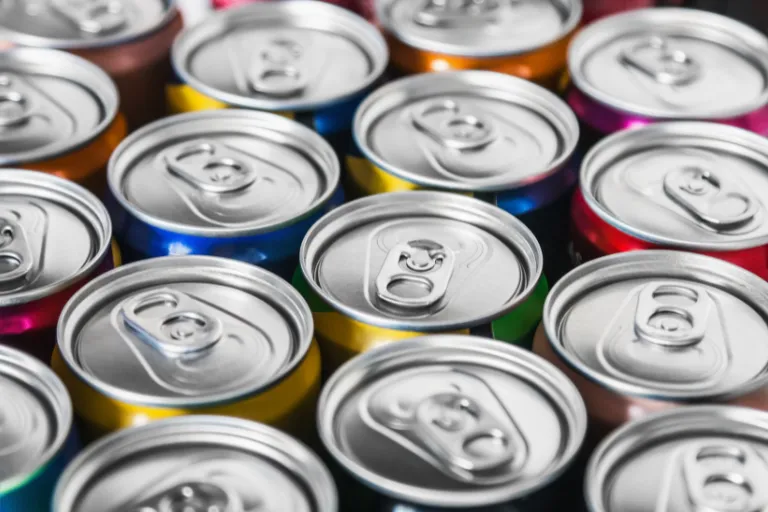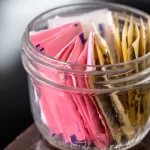How the go-to beverage for late nights and long workouts could be quietly taxing your heart, your sleep—and your future.
Why It Matters
On college campuses, inside gyms, and across late-night office shifts, brightly colored cans of energy drinks are almost as common as water bottles. Marketed as performance enhancers and mental boosters, brands like Red Bull, Monster, and Rockstar promise quick fixes to exhaustion. But behind the glossy branding lies a growing body of science—and concern.
Studies suggest that excessive consumption of energy drinks may increase the risk of heart palpitations, disrupt healthy sleep cycles, fuel anxious thoughts, and lead to dependency. For teens and young adults, whose brains and bodies are still developing, the stakes are even higher1.
Subscribe for Free for more insightful health articles tailored to your needs.
The Wake-Up Call: What You’re Really Drinking
A single 16-ounce can of Monster Energy delivers about 160 mg of caffeine, nearly equivalent to five cans of Coke. Add 54 grams of sugar—well over the recommended daily limit—and a cocktail of ingredients like taurine, guarana, ginseng, and B-vitamins, and you’ve got a potent stimulant brew.
Here’s a quick breakdown of common energy drink ingredients:
| Ingredient | What It Does |
| Caffeine | Central nervous system stimulant; boosts alertness but can raise heart rate and blood pressure2. |
| Sugar / High Fructose Corn Syrup | Rapid energy spike followed by crash; contributes to blood sugar regulation problems3. |
| Guarana | A plant extract with twice the caffeine concentration of coffee beans4. |
| Taurine | An amino acid thought to support neurological development; effects in combination with caffeine remain under debate5. |
| B-Vitamins | Support metabolism, but excess intake offers no added benefit for energy6. |
| Artificial Sweeteners | Often used in “sugar-free” versions; their long-term metabolic effects remain unclear7. |
What the Science Says: A Growing List of Concerns
- Heart Health: A 2021 review in Frontiers in Public Health found that energy drinks can significantly increase blood pressure and cause rapid heartbeat, especially when consumed alongside alcohol or during intense exercise8. Some reports even link energy drinks to emergency room visits for heart-related symptoms9.
- Sleep Problems: Even moderate intake can disrupt sleep cycles. Caffeine’s half-life is about 5 hours, but its stimulating effects can last much longer—leading to daytime sleepiness, sleep problems, and worsened cognitive performance over time10.
- Mental Well-being: Several studies tie high consumption of energy drinks with increased anxious thoughts, especially in adolescents11. Dependency patterns similar to those seen in drug use have been noted in heavy users12.
- Youth and Teen Risk: The American Academy of Pediatrics advises that children and teens should not consume energy drinks at all, citing risks to brain development, heart health, and poor sleep quality13.
Who’s Most at Risk?
According to CDC and market research:
- Teens (13–18) and college students (18–25) are among the highest consumers14.
- Fitness enthusiasts often use them as pre-workout boosters15.
- Young professionals rely on them for late-night work or travel.
- Parents and teens alike often underestimate how quickly a “harmless boost” can become a daily habit.
Regulations & Red Flags
Unlike medications, energy drinks are often marketed as dietary supplements, allowing them to bypass strict FDA pre-approval. Still, both the FDA and European Food Safety Authority (EFSA) recommend keeping caffeine intake below 400 mg/day for healthy adults, and under 100 mg/day for teens16.
Some countries—like France, Lithuania, and Norway—have imposed sales restrictions on energy drinks for minors. The U.S., however, still lacks nationwide marketing limits, despite growing concerns17.
Healthier Alternatives: What Actually Works?
If you’re looking to boost focus, endurance, or just shake off the afternoon slump—without relying on risky stimulants—consider these evidence-backed options:
🌿 Green Tea or Matcha
Milder caffeine levels (~35–70 mg), rich in L-theanine which may promote calm alertness. Studies show it improves attention without the jittery aftermath of energy drinks18.
🌱 Adaptogens like Rhodiola & Ashwagandha
Used in traditional medicine to fight fatigue and stress. Rhodiola, in particular, has shown promise in boosting physical endurance and mental clarity in small studies19.
🧉 Yerba Mate
Popular in South America, it contains caffeine but also theobromine and antioxidants, which may offer a more sustained lift without a hard crash20.
🥤 DIY Energy Smoothies
Blend leafy greens, banana, a scoop of protein, and chia seeds. You get natural sugars, electrolytes, and fiber—no crash, no chemicals.
💧 Electrolyte Hydration Drinks
Fatigue is often just dehydration in disguise. Try coconut water or low-sugar electrolyte formulas to replenish your system before reaching for caffeine21.
Subscribe for Free for more insightful health articles tailored to your needs.
The Coffee Comparison: Is It Better?
Both coffee and energy drinks contain caffeine, but the delivery mechanism matters. Coffee generally has fewer additives, no synthetic stimulants, and lower sugar. Plus, it comes with polyphenols that may support brain health22.
That said, even coffee can cause rapid heartbeat and sleep problems if overused—especially in combination with stress, alcohol, or irregular sleep patterns23.
What the Experts Say
“We’re seeing more young people with heart palpitations and disrupted sleep because they’re mixing energy drinks with alcohol or consuming multiple cans a day,” says Dr. Marissa Lee, a cardiologist at Mount Sinai Hospital.
“Most users don’t realize how much caffeine or sugar they’re taking in—or how long it stays in their system.”
Registered dietitian Anika Patel adds:
“If you’re tired every day, don’t just mask it. Look at your sleep, your hydration, and your nutrition first.”
What You Can Do Now
- Read the label: Know how much caffeine and sugar you’re consuming—some cans hide multiple servings.
- Limit intake: Stick to no more than one energy drink a day, if at all—and never mix with alcohol.
- Try a caffeine detox: Take a few days off to reset your tolerance and assess your baseline energy.
- Experiment with natural boosters: See how green tea, hydration, or a short walk compares.
The Bottom Line
Energy drinks might feel like a shortcut to productivity—but they often come with hidden costs. Whether you’re a student pulling an all-nighter, a gym-goer chasing gains, or a parent worried about your teen’s habits, the same rule applies: real energy comes from real health.
Swap the quick fixes for lasting habits—and your heart, brain, and future self will thank you.
The article does not in any way constitute as medical advice. Please seek consultation with a licensed medical professional before starting any treatment. This website may receive commissions from the links or products mentioned in this article.
Subscribe for Free for more insightful health articles tailored to your needs.
Footnotes
- Seifert, S.M. et al. (2011). Health Effects of Energy Drinks on Children, Adolescents, and Young Adults. Pediatrics. https://doi.org/10.1542/peds.2009-3592
- Higgins, J.P., Babu, K.M. (2013). Caffeine reduces heart rate variability in young adults. American Journal of Medicine. https://doi.org/10.1016/j.amjmed.2013.06.020
- WHO Guidelines on Sugar Intake for Adults and Children. https://www.who.int/publications/i/item/9789241549028
- Pomeranz, J.L. et al. (2013). Energy Drinks: An Emerging Public Health Hazard for Youth. Journal of Public Health Policy. https://doi.org/10.1057/jphp.2013.6
- EFSA Panel on Food Additives and Nutrient Sources (2009). Scientific Opinion on the Safety of Taurine. https://efsa.onlinelibrary.wiley.com/doi/10.2903/j.efsa.2009.935
- Office of Dietary Supplements – National Institutes of Health. https://ods.od.nih.gov/factsheets/VitaminB12-HealthProfessional/
- Sylvetsky, A.C., Rother, K.I. (2016). Artificial Sweeteners and the Gut Microbiome. JAMA Pediatrics. https://doi.org/10.1001/jamapediatrics.2016.2033
- Visram, S. et al. (2016). Consumption of energy drinks by children and young people: a rapid review. Public Health England.
- Substance Abuse and Mental Health Services Administration (SAMHSA). The DAWN Report: Emergency Department Visits Involving Energy Drinks. https://www.samhsa.gov/data/sites/default/files/DAWN127/DAWN127/sr127-energy-drinks.pdf
- Clark, I., Landolt, H.P. (2017). Coffee, caffeine, and sleep: A systematic review of epidemiological studies and randomized controlled trials. Sleep Medicine Reviews. https://doi.org/10.1016/j.smrv.2017.06.006
- Richards, G., Smith, A.P. (2016). Energy drinks and mental health in young adults. Journal of Psychopharmacology. https://doi.org/10.1177/0269881115627392
- Reissig, C.J. et al. (2009). Caffeinated energy drinks: A growing problem. Drug and Alcohol Dependence. https://doi.org/10.1016/j.drugalcdep.2008.05.001
- Committee on Nutrition and the Council on Sports Medicine and Fitness. (2011). Pediatrics. https://doi.org/10.1542/peds.2011-0965
- CDC Youth Risk Behavior Surveillance—United States, 2019. https://www.cdc.gov/healthyyouth/data/yrbs/pdf/YRBSDataSummaryTrendsReport2019-508.pdf
- Tscholl, P. et al. (2010). High prevalence of energy drink consumption in athletes. International Journal of Sport Nutrition. https://doi.org/10.1123/ijsnem.20.1.24
- FDA Caffeine in Food and Dietary Supplements: Q&A. https://www.fda.gov/food/food-additives-petitions/caffeine-food-and-dietary-supplements
- EFSA Journal 2015;13(5):4102 – Scientific opinion on the safety of caffeine. https://efsa.onlinelibrary.wiley.com/doi/10.2903/j.efsa.2015.4102
- Giesbrecht, T. et al. (2010). The combination of L-theanine and caffeine improves cognitive performance and increases subjective alertness. Nutritional Neuroscience. https://doi.org/10.1179/147683010X12611460764840
- Panossian, A., Wikman, G. (2010). Effects of Adaptogens on the Central Nervous System and the Molecular Mechanisms Associated with Their Stress—Protective Activity. Pharmaceuticals. https://doi.org/10.3390/ph3010188
- Heck, C.I., de Mejia, E.G. (2007). Yerba Mate Tea (Ilex paraguariensis): A Comprehensive Review on Chemistry, Health Implications, and Technological Considerations. Journal of Food Science. https://doi.org/10.1111/j.1750-3841.2007.00301.x
- Popkin, B.M. et al. (2010). Water, hydration and health. Nutrition Reviews. https://doi.org/10.1111/j.1753-4887.2010.00304.x
- Arab, L., Liu, W. (2000). Coffee Consumption and Health: An Umbrella Review. Food and Chemical Toxicology. https://doi.org/10.1016/j.fct.2012.07.028
- Roehrs, T., Roth, T. (2008). Caffeine: Sleep and daytime sleepiness. Sleep Medicine Reviews. https://doi.org/10.1016/j.smrv.2007.07.004


